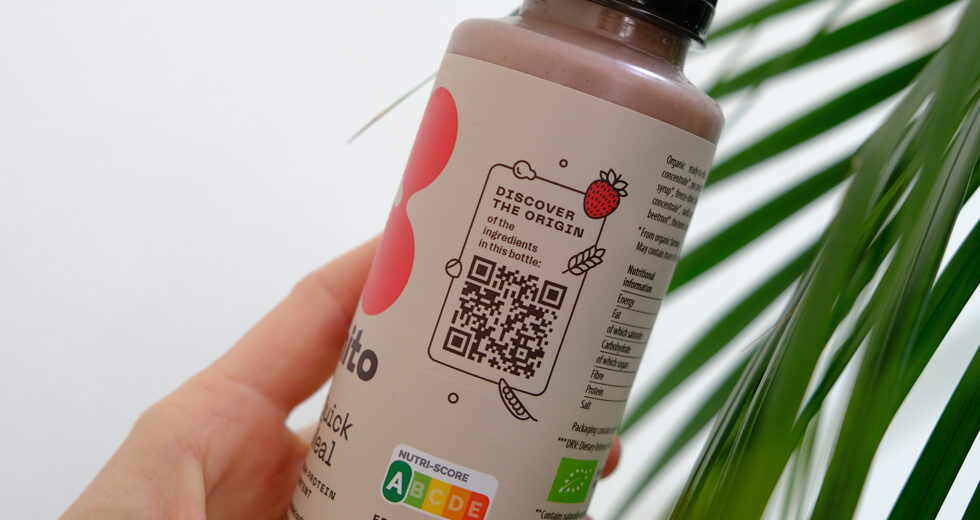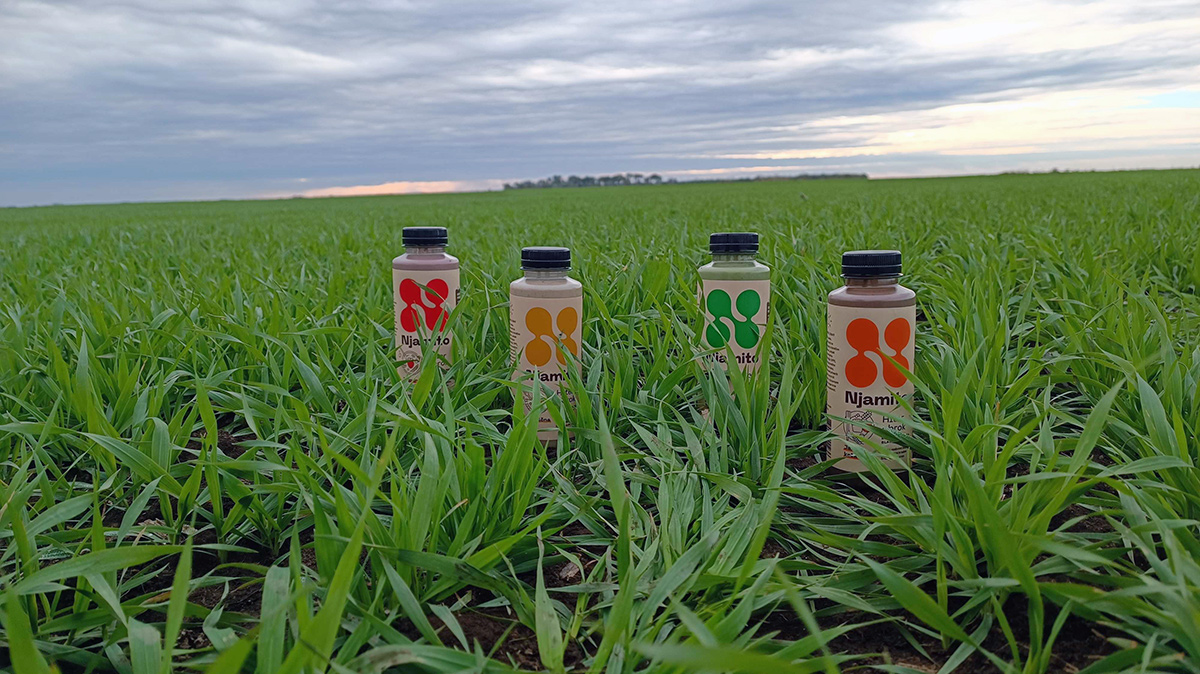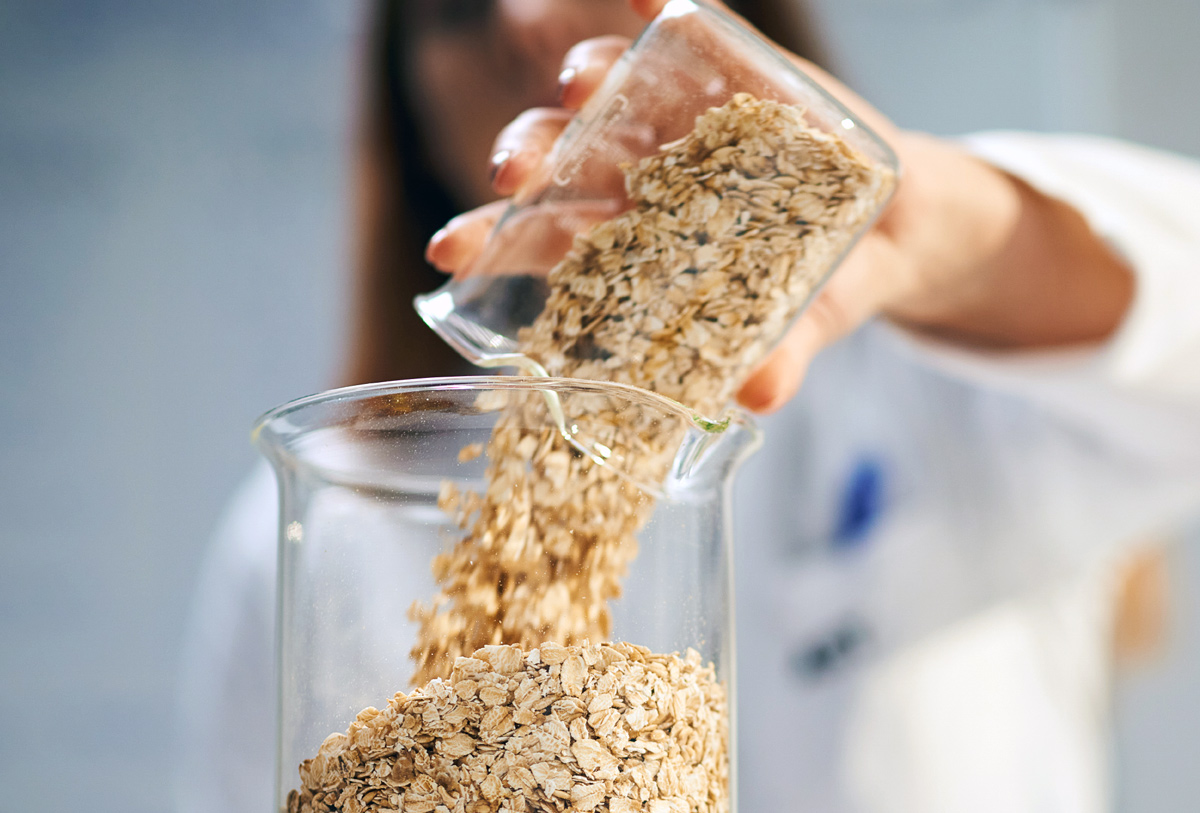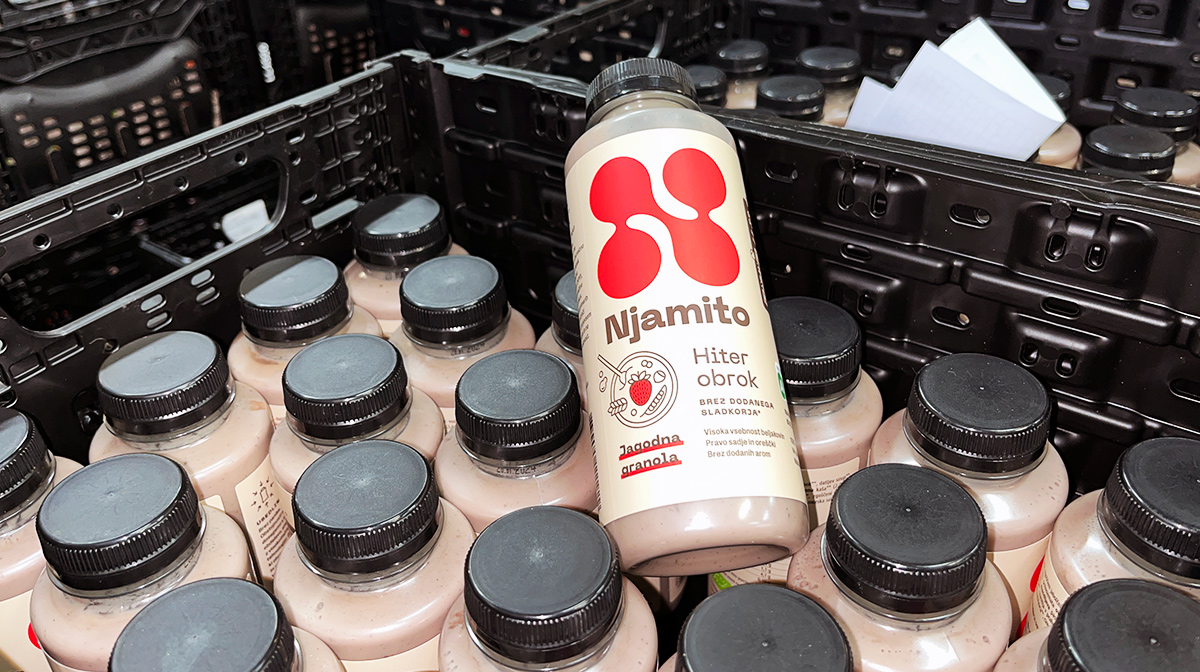Agro Expert System – Your Virtual Agronomist
October 11, 2024Our Agro Expert System helps farmers make better, data-informed decisions, transforming agriculture into a more efficient, sustainable, and profitable endeavor.
Read articleLoginEKO oats are now in Njamito. From cultivation to harvest, processing, and production, we’re proving that ultimate traceability in food production is possible.

Remember Njamito? The meal in a bottle that we introduced to Slovenia in autumn 2023? Well, Njamito just got a whole lot more interesting (as if it wasn’t interesting enough yet)! It now contains oats directly from the LoginEKO farm in Vojvodina, Serbia, allowing us to build a case for food chain traceability.
Why, you might ask? It’s simple really. Firstly, we know we have top quality oats on our farm and we wanted to make sure they are put to excellent use. Secondly, to have a complete overview of the process and the quality of production for one key ingredient – oat porridge. And lastly, and most importantly, so that we can prove to the world that complete traceability in food production – from seed to fridge – is not just possible, but can also be accessible to consumers in a simple way.

And so the journey began with a commitment to following this key ingredient —a journey that would redefine the farm-to-table experience.
Determined to deliver a product of unparalleled quality, our food development team delved into the intricacies of oat cultivation and processing. Currently lacking our own processing facilities, we decided to work with carefully selected external partners.
Selecting the right technology for flaking oats is crucial. Our chosen method involves steaming oats at 120°C, followed by compression between rollers, and cooling. Another option would be the still-cut technology, an alternative approach, doesn’t involve flaking but rather cuts oats into small pieces, later ground into flour, but this approach is not available in all processing facilities.

Once oat flakes have cooled down, they are ground into fine flour. Here, the precision in milling is vital. We have to ensure that 99.9% of the flour is finely milled enough to pass through a 500nm sieve.
Finally, the process of crafting oat porridge involves mixing oat flour solely with water and heating it to 70°C, a temperature that triggers starch gelation in oats. This mixture is then delicately spread between hot rollers, allowing a light bake, and finally, it undergoes drying in large drying drums.
Creating a product of this caliber was not without challenges. Potential oat porridge producers were wary of incorporating external ingredients into their well-established processes. Large producers also have trouble tracing ingredients from farm to factory, as many times raw materials from different origins are all mixed in large silos, a place where food chain traceability goes to die. Finally, they have rigid and set quality assurance processes, thus introducing a new provider represents a burdensome process for the entire company.
But the team didn’t give up in the quest of finding the right partner who would guarantee quality production, provide all necessary certificates, and was willing to collaborate under the concept of “Loaned Production.” The search demanded patience, negotiation skills, and a deep understanding of our vision. And it was not in vain!
To a large extent, oats are the soul of Njamito. The texture, taste, and essence of our meal in a bottle relies on the exceptional quality of this carefully cultivated key ingredient. And now that we understand the process, and the potential hurdles and challenges along the way, we are more than ever determined to make Njamito even more sustainable.
Having meticulously navigated through each stage of our process, we ensure that at every step, we have preserved the key ingredients—oat flakes, flour, and the final oat porridge. We did it with the future in mind, and we have not only secured the essence of our recipe but also laid the foundation for ongoing enhancements of Njamito.

Now, we’re researching whether certain processes can be excluded, contemplating the substitution of LoginEKO oat porridge with oat flour. This strategic shift would not only refine our recipe but also aligns with our commitment to sustainability.
We do walk the talk! Going that extra mile from our field to your fridge is a testament to the dedication to food chain traceability in LoginEKO. As we continue in our food development journey, new horizons are opening up in various directions, from semi-finished products that could be made available to food producers, to exploring the opportunities that LoginEKO pea offers for protein isolation. We keep moving forward, every day, one step at a time, towards a sustainable food system.

Our Agro Expert System helps farmers make better, data-informed decisions, transforming agriculture into a more efficient, sustainable, and profitable endeavor.
Read articleBreaching planetary boundaries impacts Earth stability and resilience. Transforming the food system to a sustainable one and adopting climate-friendly diets help mitigate environmental risks.
Read articleFollowing the success of Njamito, we're now offering sustainable solutions for the food industry to help create more climate-friendly products.
Read article